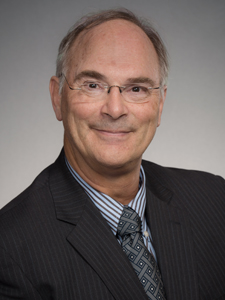 Thanks to the encouragement of a chemistry teacher, George Alec Rooke, MD, PhD, solidified his interest in scientific research during his senior year of high school. A year-long study abroad program during undergrad at Stanford University inspired him to pursue medicine, and mentors during medical school guided him toward anesthesiology. Now in the senior years of his career, Dr. Alec Rooke reflected on his medical career and the many contributions he has made to the advancement of medicine in a letter he wrote to the anesthesiology community after becoming a member of the FAER Legacy Society.
Thanks to the encouragement of a chemistry teacher, George Alec Rooke, MD, PhD, solidified his interest in scientific research during his senior year of high school. A year-long study abroad program during undergrad at Stanford University inspired him to pursue medicine, and mentors during medical school guided him toward anesthesiology. Now in the senior years of his career, Dr. Alec Rooke reflected on his medical career and the many contributions he has made to the advancement of medicine in a letter he wrote to the anesthesiology community after becoming a member of the FAER Legacy Society.
In telling his own personal story and those factors which led him to become an anesthesiologist he shares his hopes and concerns for the future of our specialty and most especially for anesthesia research and geriatric anesthesia.
Throughout his career, Dr. Rooke has remained committed to the advancement of medicine, implementing practical clinical applications from his research and serving as a resource on geriatric anesthesia education.
“About five years ago, I started a new anesthesia-based service for all surgery patients with pacemakers or implantable cardioverter defibrillators (ICDs),” he wrote in his Legacy Letter. “We currently manage their devices before, during, and after surgery. It is not a trivial issue, and it has been far more work than I ever expected at the time. Yet it is something that has been largely overlooked by the medical community because it is only a problem when it becomes a problem.
“At the UW Medical Center, we have taken over the management of these devices so effectively that it just sort of happens and nobody has to pay attention to it. There are only a few places in the country that have anything resembling what we are doing in terms of managing these devices during surgery. At other hospitals, pacemakers and ICDs are either completely ignored or perhaps a magnet is simply put on the device during surgery—which is not always a satisfactory solution.”
When the ASA established the Committee on Geriatric Anesthesia in the 1990s, Dr. Rooke became an early member. His service on that committee, which has continued since 1994, ultimately led to the creation of the Society for the Advancement of Geriatric Anesthesia (SAGA). He was founding president of SAGA in 2000 and continues to be involved in it today.
“One thing both SAGA and the ASA Committee on Geriatric Anesthesia do is to make sure the ASA Annual Meeting always has educational programs on geriatric topics,” he wrote. “We have done that for many other professional societies as well. We primarily serve as a resource for geriatric anesthesia education. It is very gratifying to see the ASA recognize the importance of geriatric anesthesia and make it one of the educational tracks at the annual meeting.
“Throughout medical school, my medical internships, and residencies, I did not have any formal training in geriatric anesthesiology. I don’t think geriatric anesthesiology should become a full sub-specialty because it is not as if the average anesthesiology practitioner has no concept about taking care of an older patient. But you do want practitioners around who have focused on the topic to provide advice, suggestions, and be the academic leaders in the field. I look at those of us with an interest in geriatric anesthesiology as the practitioners who would be sought out for our greater depth of knowledge.”
Dr. Rooke has provided charitable support to FAER for the past 20 years and recently joined the FAER Legacy Society, which honors those who make a gift to the foundation through their estates, wills, or trusts. Through his annual and legacy support of FAER, Dr. Rooke has helped safeguard the future of anesthesiology by ensuring that discovery, innovation, and education will continue on behalf of the profession for which we are so deeply passionate.
“The Foundation for Anesthesia Education and Research has a long track record of supporting beginning faculty,” Dr. Rooke wrote. “FAER has done a great job of maintaining a certain core group of true academic researchers in anesthesia, and that has been very successful. We know the track record is good for those people who receive FAER grants early in their careers to go on and get other funding after they got their start through FAER.
“FAER is one of the few things that will, hopefully, keep anesthesia as an academic specialty. FAER has been very good about recognizing the importance of geriatric anesthesia and has been very generous in supporting research in our field.”
Click below to download and read Dr. Rooke’s full Legacy Letter.
© Pentera, Inc. Planned giving content. All rights reserved.
Disclaimer